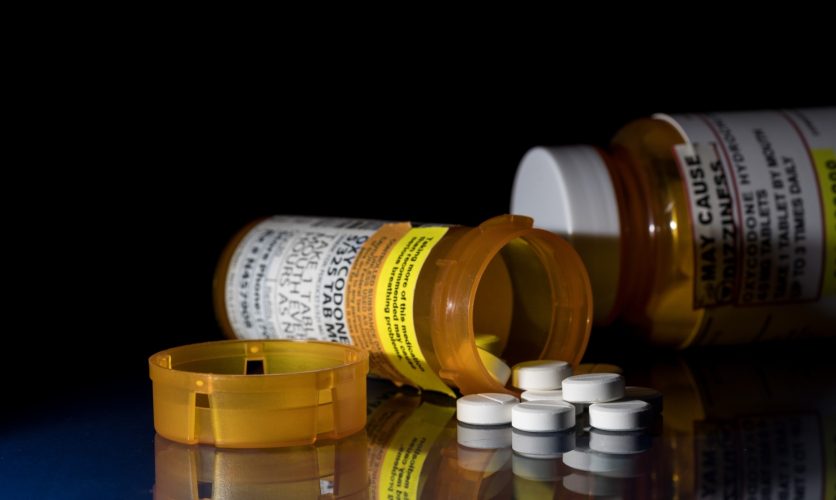The U.S. is in the Midst of an Opioid Crisis
Opioids have been around for generations but were initially prescribed for short-term pain relief. The 1980s and '90s saw an increased effort by the medical community to better manage chronic, long-term pain. In 1995 came the introduction of timed-release opioids, and pharmaceutical companies, claiming the new opioids were safe, successfully lobbied doctors and lawmakers to ease restrictions on prescribing controlled substances. Opioid prescriptions soon became the norm.
Now, the United States’ economic cost of opioid use disorder (OUD) is staggering. According to a recent analysis of 2017 opioid data by the U.S. Centers for Disease Control and Prevention (CDC), the opioid epidemic costs $1 trillion in loss of life, reduced quality of life, and costs associated with health care, criminal justice, and lost productivity.
Prescription opioids, such as oxycodone, morphine, and fentanyl, are used to alleviate severe pain, and nearly 143 million prescriptions are written in the U.S. each year. Anyone who takes prescription opioids is susceptible to becoming addicted to them.
Opioid addiction can spiral out of control and lead to the misuse of prescriptions. In 2019, more than 10 million Americans misused an opioid prescription, meaning they took too many, took someone else’s, or took the drugs to feel euphoria. The widespread misuse of opioids fuels the growing market of illicit lab-made synthetic opioids, known as street fentanyl. In 2017, 90 Americans died daily from an opioid overdose, and over 20,000 babies were born with opioid withdrawal symptoms. That same year, the opioid epidemic was declared a U.S. public health emergency.
Who is Most Affected by the Opioid Crisis?
Opioid misuse impacts people of all socioeconomic classes, races, and ages. The CDC’s opioid data sources look at Americans as young as 12 years old and report that drug overdoses are the leading cause of death in U.S. adults under 50.
Many people with substance use disorder have failing health, miss work, struggle to keep a job, steal to support their addiction, and may die from an overdose. These issues affect their children, spouses, parents, friends, and coworkers. The statistics show the burden of the crisis falls on law enforcement personnel, first responders, health care providers, and business managers.
-
More than 1.5 million people were arrested in 2019 for drug offenses.
-
1 in 80 emergency department visits is opioid-related.
-
The CDC reports OUD results in an average of 29 missed work days a year.
How Many Opioid Deaths Are There in the U.S.?
According to 2020 National Institutes of Health (NIH) overdose data, opioid drug overdose deaths in the U.S. are as follows:
-
68,630 opioid overdose deaths involving any opioid
-
16,416 prescription opioid deaths
-
13,165 overdose deaths involving heroin
Overdose Prevention
The 2022 White House fact sheet, "Addressing Addiction and the Overdose Epidemic," identifies $1.6 billion is invested in community programs combating the overdose crisis. The government will funnel money into programs that expand education, prevention, treatment, and recovery approaches for saving lives.
Following are some of the ways to prevent opioid overdoses.
Avoid taking benzodiazepines while taking prescription opioids. The combination of prescription opioids and benzodiazepines, such as alprazolam (Xanax®) used to relieve anxiety, can be deadly. In 2020, there were 12,290 opioid overdose deaths involving benzodiazepines.
Medication-Assisted Treatment (MAT). Buprenorphine and methadone are FDA-approved medications used to treat OUD. A 2018 study by the NIH reported that when compared to those not receiving MAT, opioid overdose deaths decreased by 59 percent for those receiving methadone and 38 percent for those receiving buprenorphine over the 12-month follow-up period. According to the U.S. Department of Health and Human Services, 1.27 million Americans are now receiving MAT to combat opioid addiction. It is worth noting that not all treatment centers use methadone as a typical course of medication. For those who use methadone as part of MAT, along with therapy and aftercare, it is prescribed judiciously based on the patient's individualized case.
Naloxone (Narcan) can reverse the effects of an opioid overdose. This FDA-approved drug is used to treat opioid overdoses and is administered by a medical provider, friends, and family. The NIH reports the efficacy of reversal of 75–100% when administered by a layperson.
What Population is Most at Risk for Opioid Addiction?
Opioid addiction is not inevitable, but of the 691,000 people addicted to heroin, the NIH estimates that 80% of those addictions started with an opioid prescription.
In a 2015 study, the CDC concluded that the people most at-risk of heroin addiction or dependence include non-Hispanic whites, men, 18-to-25 year-olds, and Medicaid recipients. People who have family members with addiction appear to have a higher risk of addiction themselves.
Signs of Opioid Addiction
Opioids are highly effective at relieving pain but can also give you a feeling of euphoria. This combination can make you feel like you can’t live without drugs. The irresistible cravings become unmanageable and can lead you to “engage in behaviors that become compulsive and often continue despite harmful consequences."
If you or someone you love are showing any of the following behaviors or signs of opioid addiction, talk to your mental health specialist or health care providers.
-
Out-of-control opioid use
-
Overwhelming cravings for the drug
- Sole focus on getting and taking the drug
- Weight loss
- Lack of hygiene
- Changes in exercise habits
- Stealing
- Recent financial or relationship issues
Caron Provides Various Treatment Options and Interventions to Help with Opioid Addiction
Caron can help you recover from an opioid substance use disorder. We offer opioid-specific programming using medically driven methods for treating opioid addiction.
Continue Learning About The U.S. is in the Midst of an Opioid Crisis
Take the next step:
Start a conversation
Start with an online form
-
Caron in Pennsylvania
1-800-854-6023 -
Caron in Florida
1-800-221-6500 -
Breakthrough at Caron
1-800-213-7834




